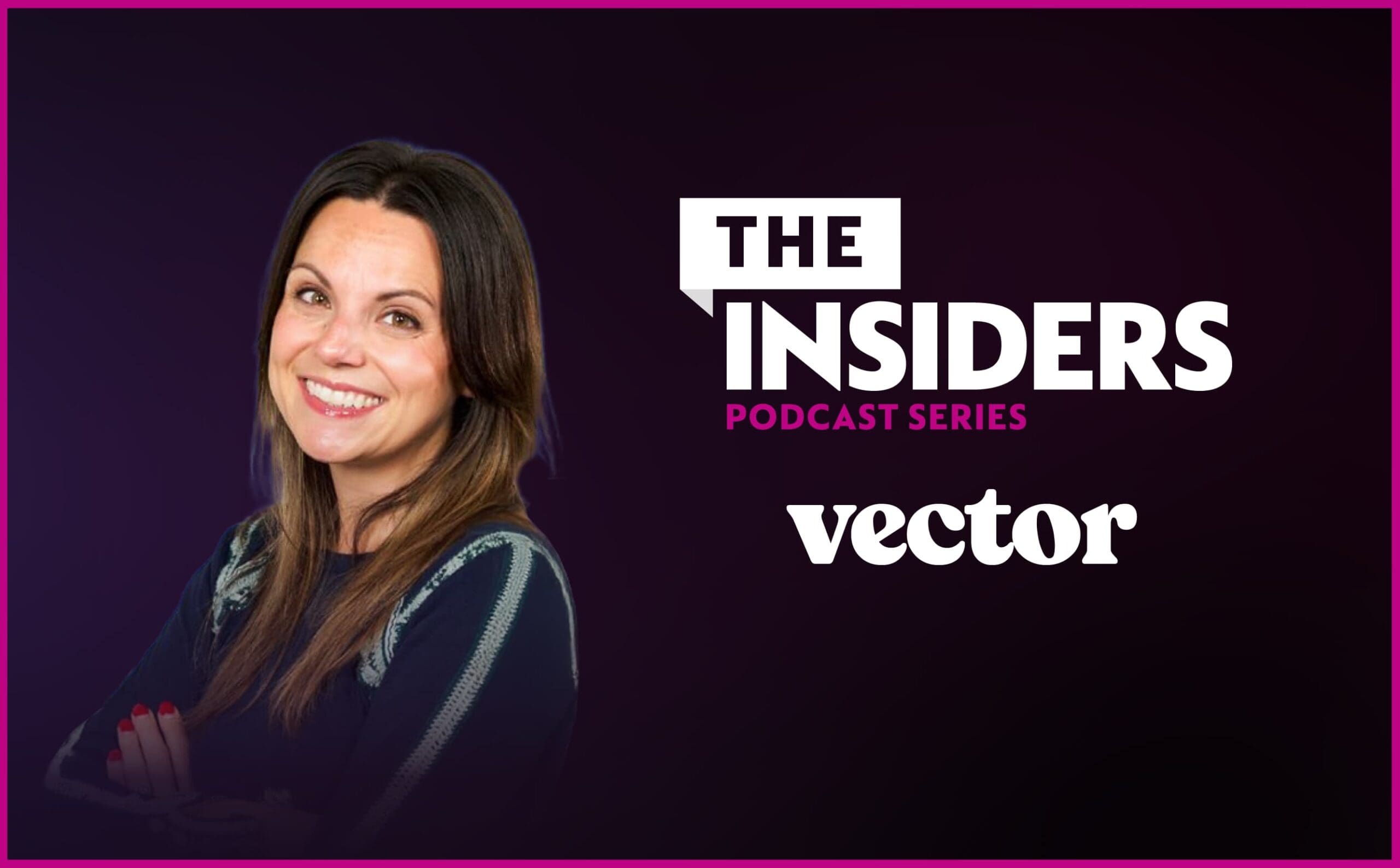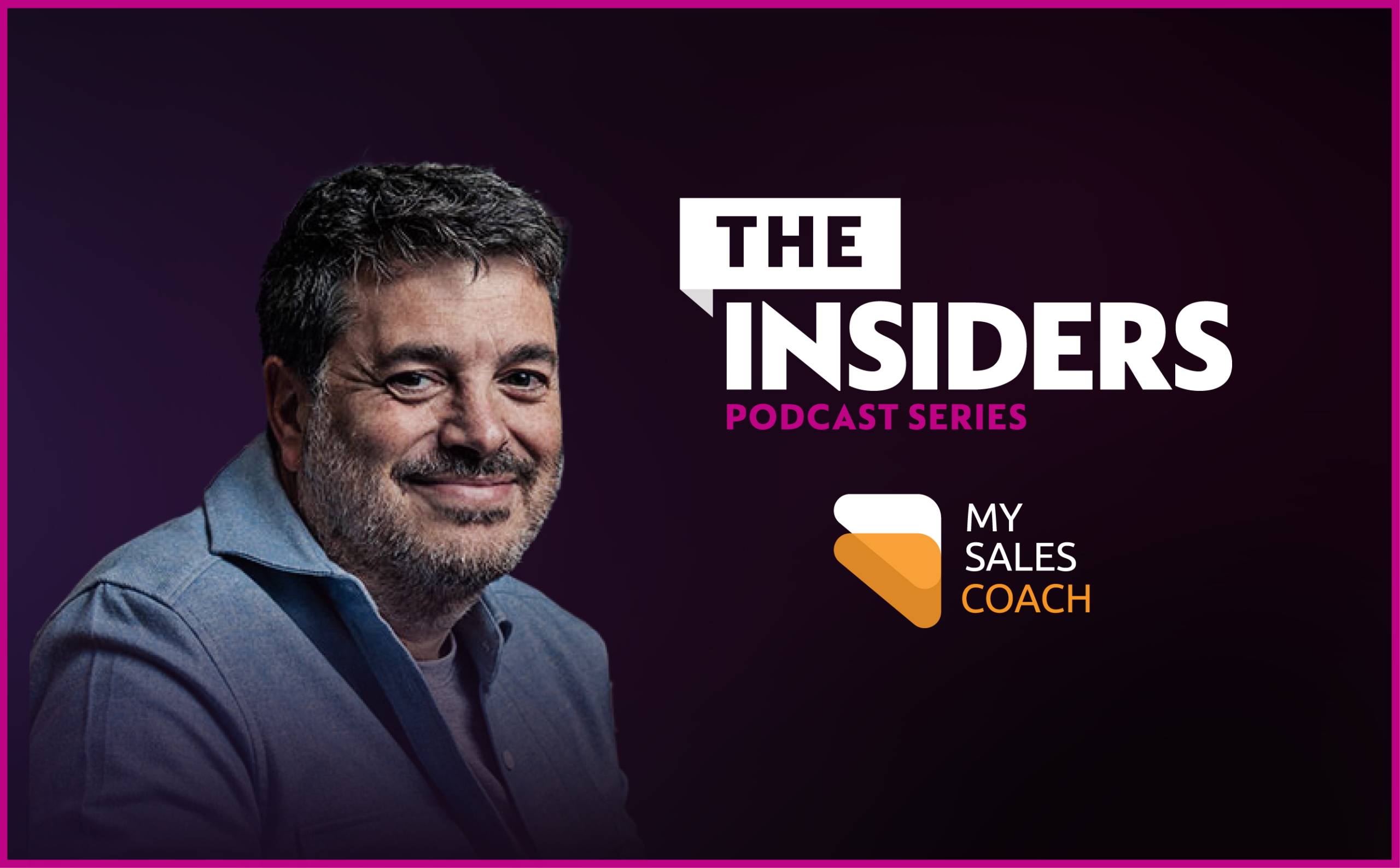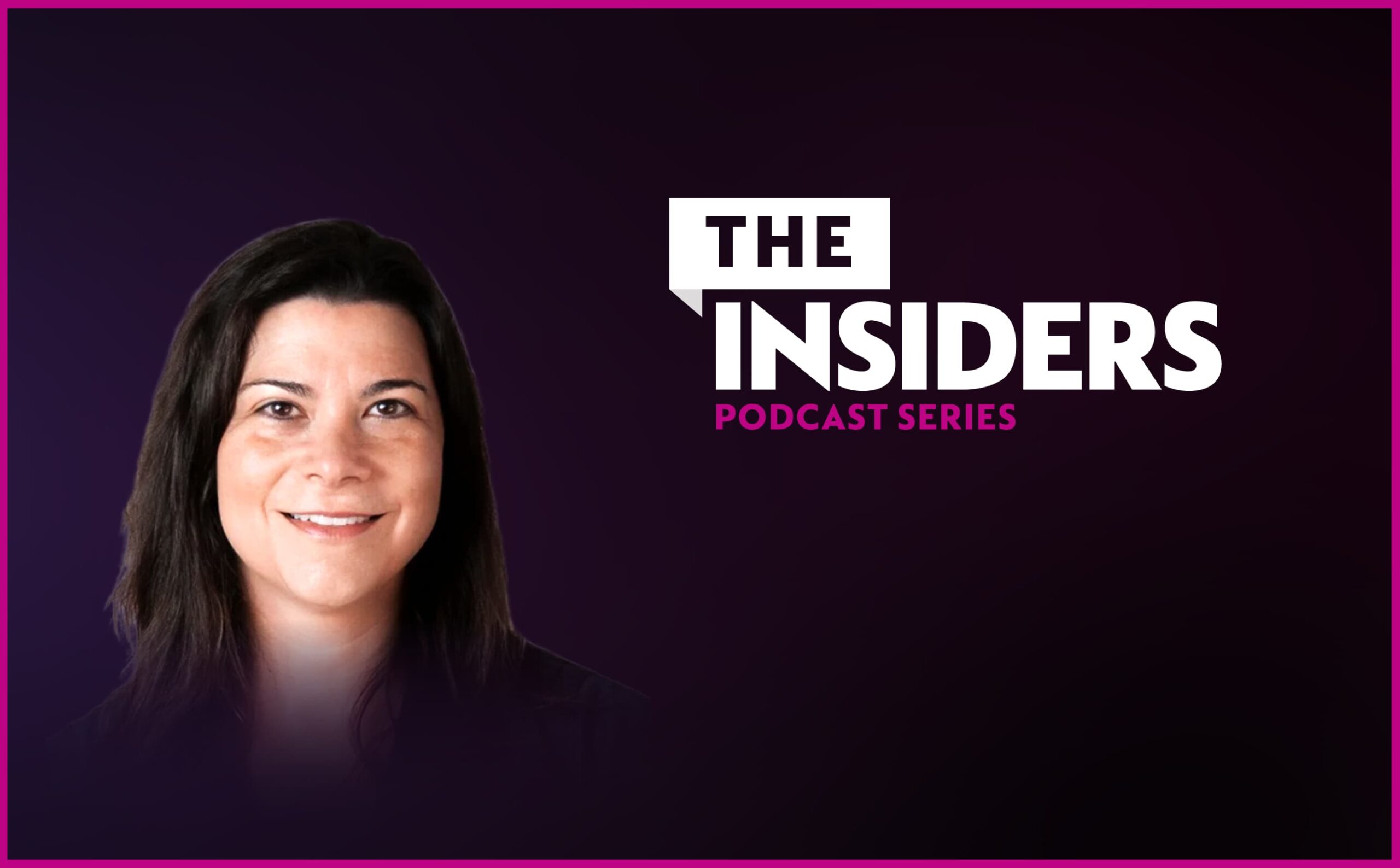Reinventing Sales Conversations: Why Listening and Curiosity Win
Available on



The world of B2B sales is shifting – again. In this episode of The Insiders, we flip the script. durhamlane co-founder Richard Lane steps out of the interviewer’s seat and into the hot seat, fielding tough questions from Ollie about go-to-market strategies, the future of SDRs, and why listening might be the most undervalued sales skill today.
From breaking down why “cold calling is far from dead” to revealing how RevOps thinking can build high-performing sales teams from scratch, Richard offers unfiltered insights drawn from years at the frontline of enterprise sales. Expect sharp thinking, a few laughs, and a challenge to rethink how marketing and sales work together.
What you’ll learn in this episode:
- Why brand recognition can make or break your go-to-market strategy.
- The surprising role of Instagram and B2C tactics in modern B2B engagement.
- Why “be interested to be interesting” is more than a mantra – it’s a sales superpower.
- The real evolution of SDR roles (and why they’re not going anywhere).
- How to spot when your sales and marketing teams are misaligned and fix it.
Listen now
Transcript
Ollie:
Welcome everyone. This is going to be a little bit different. I’m here today with your usual host, but things are going to be changing around here, aren’t they?
Richard:
They are. Change. Change is with us. Change is good.
Ollie:
Change is good.
Richard:
He just threw something up on his face. Change might not be that good.
Ollie:
The notes that he’s prepared today I’m sure will get through to a few different questions, but a bit of a heads up everyone. So the podcast is going to change, and your good friend Richard Lane is going to be speaking through some interesting stories, is the plan at least. And asking what and why about a bunch of stories.
I’d love to get a bit of an example from you. What kind of stories do you think you’re going to be hearing from guests coming on in the near future?
Richard:
From guests coming on in the near future, we’re going to be hearing go-to-market stories. I think there will be stories around sales excellence, sales lessons, sales learnings, obviously the world of lead generation, demand generation. But I guess most importantly, how have our customers and our clients and people in our industry that we respect and acknowledge, how have they helped create success for themselves and for their people and for their customers?
Ollie:
Looking forward to it. I’m hoping that you’re going to get the chance to pick holes and poke holes in. “Why did you do that?” is what I really want to hear, what I think listeners are going to hear quite a lot of.
They change the SDR model or something like that. What’s the reasoning? And then you’re going to pick out from your experience, why did you do it that way? Why didn’t you do it this way? And hear why things happen the way that they did for these people.
Richard:
I think it’s going to be pretty interesting. We’re going to add a few different quickfire rounds, a few different ways to get some divisive opinion clips.
Ollie:
I might take you through a couple in a minute. I’ve got quite a lot, which is why I’m looking at my phone to try and remember some of these. I think maybe we’ll start on a couple at the end of each episode if that sounds good to you.
Richard:
Sounds good.
Ollie:
Okay, cool. Well, I’ll start with one. This one might have been one of my favourite ones. You might reject this and it’s okay.
Richard:
How many rejects can I have?
Ollie:
Can we say a maximum of three in today’s recording?
Richard:
Okay. What if I have 15 questions?
Ollie:
Yeah, okay.
Ollie:
Max three rejects. Let’s see where we get to. Tell me about the most difficult go-to-market project or strategy you’ve ever worked on.
Richard:
So this is a really challenging question. I’m not going to reject it. But I think every project is unique and comes with its own challenges. And I think brand recognition, brand resonance, is a really important factor for a successful program.
And a quick example of that is that if I’m selling as Deloitte into CFOs, I can probably get a lot of meetings and opportunities for you. If I’m selling an unknown piece of really cool financial fintech software, but there is no brand recognition, then it’s going to be really, really hard.
Now, you might look at the same market, the same personas, the same decision-makers, and that one difference being the brand. And so we have a myriad of those left and right turns with every project that we have. Great products, unknown brands, really well-known brands, services, etc. So I think there are uniquenesses to everything.
Probably going back into some of the past online projects, we’ve sold a lot of software development services for our customers. No product, no service. Taking ideas and turning them into solutions with technology. They were rock hard, but really enjoyable. So we did some great work in that space, but those were difficult programs.
Ollie:
What I heard really was: no brand. When you’re cold calling, you’re very much cold calling. And where there’s a bit of the value of what the sale means, you’ve got to have advice and credentials to come with it. And you’re trying to help build someone’s dream, but maybe even the ways that they think to do it might not be correct too. That’s a whole level of consulting as well.
Richard:
Absolutely.
Ollie:
Difficult. I can see why that’s a pretty difficult one. I’ll move on. Tell me about a surprisingly successful strategy that you’ve experimented with over the last few months or so.
Richard:
I’ve always believed that B2B engagement tends to follow B2C activities. So a great place to sell to me, for example, is on Instagram. So a great place to sell or get the attention of decision-makers is in the moments where they’re relaxed.
So how do you blend those two worlds together? Maybe I’m able to create relevant messaging, push it out through Instagram, other social channels, which typically I might be looking at when I’m in a relaxed mode. I might even click “find out more” and fill out a form, which then allows us to then take that forward into a sales motion.
Ollie:
What’s your Instagram handle is the next question on the piece of paper, believe it or not.
Richard:
My handle is @richardmlane, I think.
Ollie:
Cool. All right, I’ll send you a message. Or anyone else who has a thing, feel free to give it a shot.
Name me something that’s now table stakes in B2B sales that wasn’t as important even just a few months ago.
Richard:
So this is a really funny one for us because outbound calling is table stakes.
Ollie:
It wasn’t a few months ago.
Richard:
Well, it wasn’t. Everyone was relying on email or inbound. If you’ve been anywhere near LinkedIn for the last quarter, probably maybe a little bit longer, it’s all about outbound. So we knew that was the case — it’s never gone away for us. But actually, I think from a mainstream perspective, there’s now an understanding that we have to go out and find potential customers. They’re not just going to come looking for us.
Ollie:
So the new thing is cold calling.
Richard:
Exactly. It never goes away, even though it’s dead apparently.
Ollie:
Yes, indeed. Speaking of dead and buried — will the SDR role die?
Richard:
Will the SDR role die? No. Will it evolve? Yes. When I started my career, there wasn’t such a thing as SDR. I was a sales executive, I think I was. Telemarketer I started off as.
So the SDR role really came out through the advent of software sales — Salesforce, Oracle, the others — became more of a role. So will it die? No. Will it evolve? Yes.
Ollie:
As someone who sells what they’re selling — great answer. Thank you. Appreciate that.
I’ll roll one little question in with a small plug afterwards, so keep that in mind. What would your advice be to a business looking to build a sales org from scratch?
Richard:
So I think if you’re going to build a sales org from scratch, I think firstly, I would think — rather than “sales org” — I’d think RevOps.
So I would think of my sales team and my marketing team. I’d be thinking about all of the different channels. I’d be thinking about being proactive, being really also reactive.
So not just going out into market, but responding really rapidly to people that find you. How do they find you? Goes back to that Instagram comment — you’ve got to think outside the box around creating interest.
We’ve built a business around taking flickers of interest, small hand raises, nurturing them through consultative questions — question-led inquisitiveness. One of my mantras is: be interested to be interesting.
So the more interested you are in people, then the more interesting you become to them. And we’ve been able to then turn that into revenue.
So I think I wouldn’t go out and hire a bunch of really expensive people. I also would have the right people in the right roles at the right time.
Ollie:
“People in the right roles at the right time.” Where’s that from — “Be interested to be interesting”? I’ve heard that a few times, I just don’t know who quoted it.
Richard:
Well, it’s durhamlane Mantra Number 3 — “Be interested to be interesting.”
I did sort of nick it, I guess, from Stephen Covey — Habit 5: Seek first to understand, then to be understood.
Ollie:
Yeah, well I mean The 7 Habits of Highly Effective People — an amazing book. Sort of very pivotal, life-changing book for me when I read it years and years ago.
Richard:
And yeah, I mean, I think it’s… we talk about being inquisitive, we talk about being professionally persistent, we talk about business fit and business value, and I think if you are connecting, contacting, trying to reach someone because you believe there’s a fit and you believe you can add more value to their business than they’re going to spend with you — you should have the authority to keep going.
Ollie:
There you go, okay.
So, folks, that’s a sample, I would say, of some of the types of questioning along the stories that you’re going to hear in the near future — at least we think, let’s say. We haven’t recorded with anybody yet, so let’s do that. If you want to come on, you know where to find us.
Richard:
Oh yes, please do. Let’s start the guest list now when we get out of here.
Ollie:
But I did mention a quick plug. So I asked you about building a sales team from scratch — we might be doing a webinar about that. Have I told you about that?
Richard:
The webinar?
Ollie:
Yes. We’ve just started those discussions. We’re so excited about the webinar. Just started.
So I’m sure there will be a link somewhere in the description below — or wherever you’re watching, listening — below to that. So make sure you come along to that. This may be after the webinar, but I’m sure a replay is available. So that will be good fun.
The last thing we’re going to do today — and then we can get you out. We’ve been going for about 10 minutes or so, so this is a bit of a shorter episode than usual.
I want to ask some questions that are going to make people sweat. And today I’m only in front of one person who I’m able to make sweat.
So, Richard Lane — how much would I have to pay you to become a full-time marketer?
Richard:
A pound sterling? I feel like I’m already one. I’m a founder of a business, so no money required.
Ollie:
Thanks, Ollie. What a dodge that was. That’s my strike one, is it?
Richard:
Yes, strike one.
Ollie:
I think strike two and you might be out with only a few questions left. Well played.
I was going to ask you, the next one would be: what job would it be?
Richard:
Well, I was a marketing director once, actually. So, back in my corporate life, I joined a business as a sales director — one of three divisions. Sales director. It wasn’t a massive company.
Went through lots of change, and I came in one morning and the CEO — who was a great guy — he said, “Richard, you’re now our marketing director.” Which I thought was interesting, because I had absolutely no experience or credentials.
But did some really interesting stuff, particularly around Pareto Law — 80/20 analysis — who are our customers, who spends the most with us, where do we get most of our value from.
I did that for about six months, and then I was moved on to a different role.
Ollie:
Down the road, or to a different role?
Richard:
No, up to a different role.
Ollie:
Very good, very good. Well, good story, good dodge. Turned into a good story, I like it. I’ll give you a point for this one.
I think you’re going to be asking — if you’re speaking to a marketer — the other side of things, for a salesperson. Name me a salesperson and/or a marketer you really highly respect.
Richard:
I thought about this one, and I’m going to go with a book, if that’s alright.
Ollie:
Sure.
Richard:
Two guys wrote a book called Beyond Selling Value. Dan Shonkran and Mark… Dan and Mark — I forget their surnames, we can put it in the notes.
The book was called Beyond Selling Value. I read it just as I moved into my first proper global enterprise sales role, and it sort of changed the way that I approached business, and was foundational for me in terms of thinking differently about that consultative sell, and helped me win a lot of big programs and make a lot of money.
So I would like to thank them for that.
Ollie:
I’m sure they’re grateful.
Halfway through the quick fires, a few more to come then.
I’m not answering in a very quick-fire method, am I?
Richard:
I’ll have to get used to this when we’re on the other side.
Ollie:
Look, each of these is a LinkedIn post, a great video, and that’s a little bit of the behind-the-napkin there.
This one, I could give you a hundred.
Name me one sales phrase and one marketing phrase to ban.
Richard:
“Cold calling is death.”
Ollie:
Agreed.
Richard:
Marketing phrase… I don’t know.
Ollie:
I’ll have to have half a point for that.
Richard:
Half a point.
Ollie:
Okay, you’ve got half a denial left in you. Okay, let’s go.
If your career had a warning label on it, what would it say?
Richard:
“Has a tendency not to switch off.”
Ollie:
Okay, me too. Why is that?
Richard:
I just sort of love it. So I think I am addicted actually. I was thinking seriously about this a while ago, and I think I am addicted to work.
Ollie:
You’re in the right line.
Richard:
I’ve said it.
Ollie:
Did you see — there was a guy on LinkedIn who posted, you know how people just get swept away with… this is a bit of a meme. He posted — basically he discovered what holidays are, and he was presenting this as a normal idea — people roasting him. Obviously, do you not know what a holiday is?
Richard:
Yeah.
Ollie:
So, yeah, I read that and thought maybe I should have one of those at some point.
Richard:
Yeah.
Ollie:
I’m with you. Cool, okay, I’ve got three more. How many dodges do we have?
Richard:
Half a dodge.
Ollie:
Half a dodge. Okay, you’re going to have to spread it out.
What’s something that took you way too long to figure out in your career?
Richard:
Probably still two things. Can I do two and get a half point back?
Ollie:
Sure.
Richard:
So one thing is sort of that feeling of presenteeism. So I find it very hard to take time out when I feel like I should be working — which when you look at my last answer is not a great place to be.
And the other one is, I guess, delegation, and that feels like a lifelong challenge to me. Because in the back of my mind, subconsciously, I’m always thinking: I can do it fast, I can do it better, so why get someone else to do it?
I know that is totally wrong. I work on that every day — to delegate, and to delegate effectively allows you to create that one plus one equals three.
Ollie:
I think we’re related. I’ve found that so hard. It’s always, yeah, but I could just do it. I could do it quick and I could tell the person who’s fresh to a task how to do it. But that’s wrong.
Richard:
Yes. And I find it very difficult to write down properly. And what’s also interesting is that it’s not frankly true. Yeah, my head’s massive for saying that, but it’s true.
Ollie:
Yeah, I’ll just say it my way.
And I guess being a founder of an organisation is an area where that demon can thrive, really — particularly because we tend to employ people at the beginning of their career and then develop them through, and we’ve got some amazingly proud moments of taking people from sort of joining, not knowing what sales was or what they wanted to do, to becoming hugely successful in some of the biggest companies in the world. And I love that about what we do.
Richard:
But there are a lot of smart people out there, and I’m not the smartest of the lot, definitely.
Ollie:
I find it really interesting how a company is often as close to the personality type of the founders as it could possibly be — for better and for worse — which is a really strange thing. I’ve always noticed that.
You’ve got a sales founder who’s brilliant at this but a bit chaotic in those other ways, but the business happens to be like that too.
Richard:
Yeah.
Ollie:
I remember the first day of my life of work — the boss, Johnny, he said to me, “Ollie, what do you know about content?” And I said, “What’s content?” It’s not what I do.
So, yeah. It’s funny how it goes.
Ollie:
Okay, two more. What’s a belief that you used to have about sales or marketing that you have now totally done a 180 on?
Richard:
So, like probably everyone else in our world, I used to think marketing was one thing and sales was another. And I used to get frustrated.
My very first job, even — in London, Finsbury Circus — working for an IT training company, I used to stay there for a few nights every six months, stuffing training brochures into envelopes and posting them off, thinking, you know, this marketing stuff is useless.
I remember some campaigns when I worked there — a very large software company — thinking, this is nonsense.
They are absolutely connected. We run a mass sales division here. It needs to be one and the same. You need everyone on the same page. You need to just have that revenue lens in everything that you do. So, a total 180. It’s been like that for a long time, frankly, but I think I was probably where a lot of people still are at the beginning of my career — and now I’m in a very different place.
Ollie:
Good to hear. Good story.
Last one. Saved one of the best ones for last — maybe! I might come back to how much to be a full-time marketer, if I can get you to answer it.
Finish this sentence:
Sales or marketing would be ten times better if marketers or salespeople just…
Richard:
…listened more.
Ollie:
Listened more. And which group of people was that?
Richard:
Both. Both — because I think, I mean again, Mantra Three: “Be interested to be interesting.”
If you spend your time listening to what someone is saying to you — both from a marketing, from that initial point of view, but also from a sales perspective — then you’re going to ask better questions, you’re going to get to the heart of the matter more quickly, and it becomes an opportunity.
Or you qualify out. It doesn’t matter which. Both are really valuable.
And people, frankly, are still terrible at listening.
I’ve spent a life in sales — or a career in sales — having to purposefully, actively listen every day. And the downside of that is, sometimes I go home and realise I just don’t actively listen at all. You sort of want to relax, and sometimes that means you don’t bring your best self in the home environment.
And you should do, because it’s as important, if not more important, than the other side.
So, active listening is hard — that’s why people don’t necessarily do it.
If we all did it more, we’d all be better.
Ollie:
I don’t know the source of this data, but a salesperson I know — who’s very good — told me they’d done a test. And they decided that this test, this study, said something to the effect of:
In every 45 words a prospect said, the salesperson could recount five of the key points of it.
Which is a staggeringly low amount.
People who are really good at active listening probably even get to 15 — not 30, not 20, not 40 — 15.
Which tells you how much we actually miss, which is weird.
Richard:
I was once taught 95–5. So, in a discovery, if you can talk for 5% of the time, and have the other side talk for 95%, you win.
And it is totally true. Wherever I’ve achieved that…
And the reason why that happens is because you’re just tripping the conversation along with very short question sentences.
And you’re having the other person undertake a bit of personal therapy — and you become the solution partner.
Ollie:
I have to ask — what’s your average talk time on discovery calls? 5%?
Richard:
No.
It’s when I’ve… I guess definitely when I was doing a lot of consultancy work in my first business, then I would be tracking that. And actually, whenever I’ve got… 95.5 is really hard, by the way — so I’m sure I’m not at 5%.
But when you get that right, something happens, and you tend to go on and hopefully you win that deal.
Ollie:
Last one — how much would I have to pay you to become a full-time marketer?
Richard:
One million dollars.
Ollie:
Just a million? Alright — someone make it happen.
Richard:
No, well, okay — can we say, redo that — three million dollars.
I want to find a seat. It’s on record.
Ollie:
Yeah. How long would I have to do the job for? What are the hours?
Richard:
I don’t know. Full-time plus — you know, you can’t…
Ollie:
See — I’m not asking the questions here!
Richard:
You can’t switch off — so it’s whatever time you want to make it.
Ollie:
Yeah.
Very good. Alright — thank you, sir. Good fun.
Richard:
Thank you — enjoyed that.
Ollie:
New style to the podcast. I can’t wait to see you in action, doing this with guests — with other stories to tell.
How was it to be in the hot seat today?
Richard:
Great — loved it.
Yeah, good. Hopefully some good stuff in there — a bit of value we can chunk up, cut out and share with the world.
Ollie:
Plenty of flips to come with you, plenty of flips to come with other people in that chair over there — or online, on Zoom and other places.
Any last words before we close out?
Richard:
No, I guess really — if you would love to be on the podcast, The Insiders, if you would tune into the webinars we’re going to be doing — excited about all of that.
And yeah, love to have people that love marketing, love sales, and most importantly want to grow their businesses and help their team to be successful — we’re here to help with that.
Ollie:
Done deal. So like, subscribe — all the rest.
Richard:
All the rest of it.
Ollie:
Recent Episodes
-
 Brand, Content and Building Demand with Jessica CookFebruary 2026
Brand, Content and Building Demand with Jessica CookFebruary 2026Jessica Cook, Head of Marketing at Vector, joins Richard Lane to explore how brand, content and storytelling can strengthen pipeline performance and support sustainable B2B revenue growth.
Listen now -
 State of Sales Coaching 2026: What Leaders Get WrongJanuary 2026
State of Sales Coaching 2026: What Leaders Get WrongJanuary 2026Sales coaching should drive performance – yet many teams say it’s falling short. In this episode, Richard Lane and Kevin Beales explore what sales leaders need to change.
Listen now -
 How to Build a High-Performing Marketing OrganisationJanuary 2026
How to Build a High-Performing Marketing OrganisationJanuary 2026Jessica Gilmartin, former CRO and CMO at Calendly, joins Richard Lane to discuss how to build a high-performing marketing team and why revenue should be the focus of modern marketing.
Listen now

